The Gut-Brain Tango: How Diet and Stress Intertwine
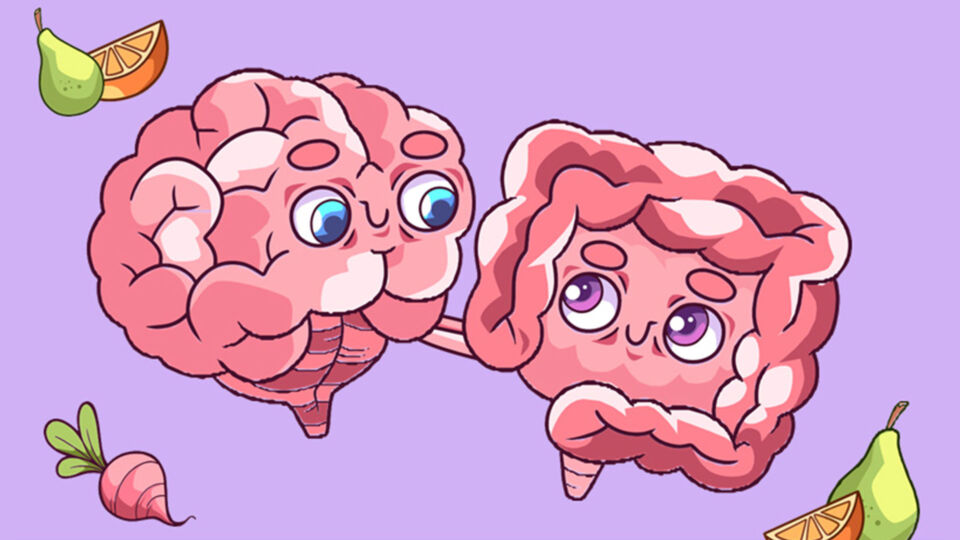
In the whirlwind of modern life, stress has become an unwelcome, yet often persistent, companion. We navigate demanding careers, juggle personal responsibilities, and are constantly bombarded with information, leaving many of us feeling frayed at the edges. While we often consider exercise, mindfulness, and sleep as key stress management tools, the profound impact of our diet is frequently overlooked. Yet, the food we consume plays a crucial role in our body’s ability to cope with and recover from stress.
Think of your body as a finely tuned machine. When stress hits, it is like revving the engine at high speed for extended periods. Just as a car needs the right fuel to perform optimally under pressure, our bodies require a consistent supply of nourishing foods to weather the storm of stress. A diet lacking in essential nutrients can leave us feeling depleted, exacerbating stress symptoms, and hindering our resilience.
One of the most significant links between diet and stress lies within our gut. Often referred to as the “second brain”, our gut is home to trillions of microorganisms, collectively known as the gut microbiota. This intricate ecosystem plays a vital role in digestion, immunity, and even the production of neurotransmitters, chemical messengers that influence our mood and behaviour.

Stress can disrupt the delicate balance of our gut microbiota, leading to an overgrowth of less beneficial bacteria and potentially contributing to inflammation. This gut imbalance can impact our mental well-being.
So, what does a stress-busting diet look like? It is less about restrictive rules and more about embracing a holistic approach that nourishes both body and mind.
Key dietary players in stress management include:
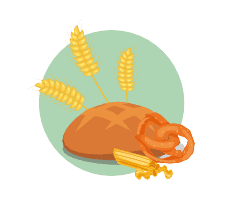 |
Complex carbohydratesChoose wholegrains like oats, quinoa, and brown rice over refined carbohydrates. In comparison to refined carbohydrates, wholegrains are digested more slowly by our body, leading to a more consistent release of energy. This steady release of energy helps to prevent blood sugar spikes and crashes that can contribute to mood swings and tiredness, ultimately making us more susceptible to stress. |
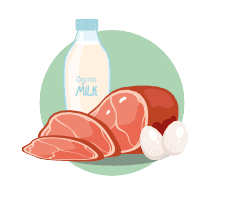 |
Lean proteinsInclude sources like fish, poultry, dairy, beans, lentils, and tofu in your diet. |
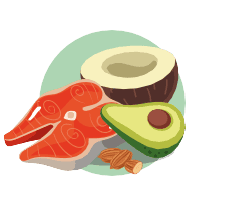 |
Healthy fatsConsume avocados, nuts, seeds, and olive oil. Omega-3 fatty acids, found in oily fish like salmon or plant-based options such as flaxseeds, have been linked to reduced inflammation and improved mood. |
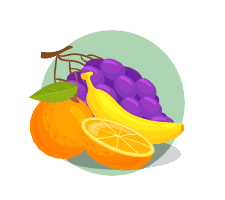 |
Vitamins and mineralsA colourful array of fruits and vegetables provides essential vitamins and minerals that support overall health and resilience to stress. Focus on foods rich in B vitamins (important for nerve function), magnesium (helps to regular our body’s response to stress), and vitamin C (an antioxidant that can help combat the effects of stress hormones). |
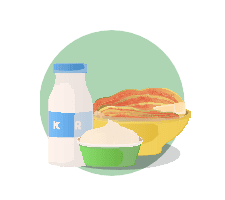 |
Probiotic-rich foodsIncorporating fermented foods like yoghurt with live and active cultures, kefir, sauerkraut, and kimchi can help support a healthy gut microbiota, potentially improving mood and reducing anxiety. |
 |
HydrationDehydration can mimic symptoms of stress, such as fatigue and headaches. Ensure you are drinking enough water throughout the day. |
Conversely, certain dietary habits can exacerbate stress and anxiety. Processed foods, sugary drinks, excessive caffeine, and alcohol can lead to energy crashes, inflammation, and disruptions in blood sugar levels, making it harder for our bodies to cope with stress.
It is important to remember that there is no one-size-fits-all approach to diet and stress management. Individual needs and responses can vary. However, by focusing on a balanced, nutrient-dense diet that supports gut health and provides sustained energy, we can build a stronger foundation to navigate the inevitable stresses of life.
Ultimately, understanding the intricate tango between our diet and our stress levels empowers us to make informed choices that support our physical and mental well-being. Nourishing our bodies with the right foods is not just about physical health; it is an act of self-care that can significantly enhance our ability to cope, adapt, and thrive in the face of stress. So, the next time you are feeling overwhelmed, consider not just your to-do list, but also what is on your plate. It might just be the key to finding a little calm in the chaos.



